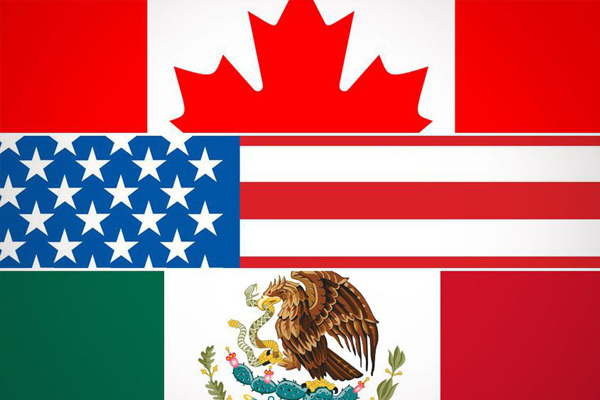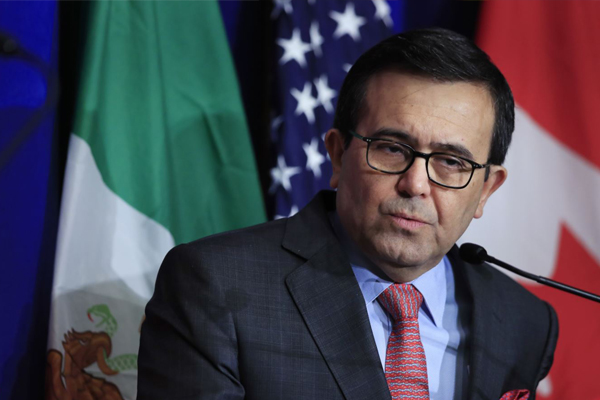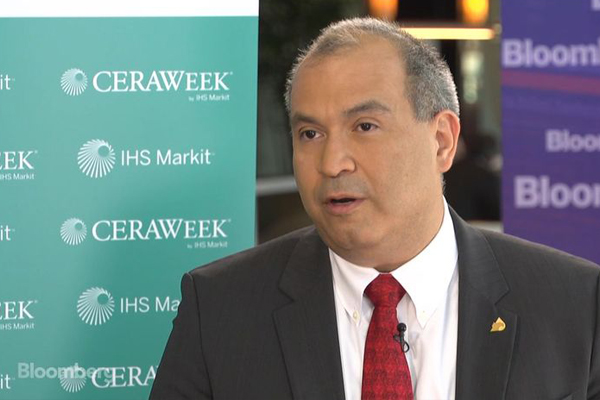A closer look at round seven of the NAFTA negotiations
FROM: Lexology / Dentons / 19 de marzo de 2018
Round seven of the NAFTA negotiations concluded in Mexico City on March 5, 2018. The talks ended with United States Trade Representative, Robert Lighthizer, indicating that the US is prepared to walk away from NAFTA and replace it with separate bilateral agreements. He urged the parties to finish the negotiations quickly, “Now our time is running very short…I fear the longer we proceed, the more political headwinds we will feel.”1 Lighthizer alluded to several ‘political headwinds’ that could impact the future of negotiations, including the presidential election in Mexico, provincial elections in Ontario and Quebec, and the US midterm elections.
The talks were impacted midweek by an announcement from President Trump that his Administration would impose tariffs on steel and aluminum imports. The proposed tariff would be 25% for steel imports and 10% for aluminum imports.
The proposed tariff triggered controversy within the Republican Party and the Administration itself. US House Speaker Paul Ryan, backed by a number of Republicans who support the President, has urged President Trump to back away from threats of a tariff, fearing that it could spark a trade war.2 In a letter to the President, 107 House Republicans wrote, “We urge you to reconsider the idea of broad tariffs to avoid unintended consequences to the U.S. economy and its workers.”3 On March 6, Gary Cohn, President Trump’s economic advisor, resigned. Cohn was a voice of free trade in a White House that is ambiguous at best on trade agreements.4
While the tariffs announced by President Trump ultimately excluded Canada and Mexico “for now”, the threat of tariffs proposal loomed over the remainder of the negotiations. Reportedly, the proposed tariff was the starting point for many discussions and was often referred to as “the elephant in the room”.5 The tariff proposal further impacted negotiations when President Trump linked the tariffs to the NAFTA negotiations. On March 5, he tweeted “Tariffs on Steel and Aluminum will only come off if new & fair NAFTA agreement is signed”.6 Canadian Trade Minister Chrystia Freeland responded in her closing remarks by saying “Canada would view any trade restrictions on Canadian steel or aluminum as absolutely unacceptable.”7 Mexican Economy Minister Ildefonso Guajardo responded by tweeting “Mexico shouldn’t be included in steel & aluminum tariffs. It is the wrong way to incentivize the creation of a new and modern #NAFTA”.8 On March 7, President Trump announced that he would initially exclude Canada and Mexico from the proposed tariff. However, the exemption could be rescinded if Canada and Mexico do not agree to an updated NAFTA.9
Notwithstanding the short term exemption on steel, supported by the Steelworkers and Speaker Ryan, President Trump again tweeted on March 5 on the Canadian farm system and how Canada “must treat [US] farmers much better.” Thus, US agricultural demands remain on the table, while Canada continues to steadfastly defend its agricultural sector, including the supply management system. Whether and how the negotiators will successfully bridge this issue remains to be seen.
Limited progress was made in other areas, such as the rules of origin provisions. Jason Bernstein, the US negotiator for rules of origin, was called back to Washington on February 26 to consult with US industry representatives, thus halting negotiations. Talks amongst technical experts are scheduled to resume in advance of the next formal round of negotiations. Similarly, investor-state dispute mechanisms and the proposed sunset clause were not emphasized this round.
With respect to energy, we understand there is agreement to include both a standalone chapter on energy as well as energy related sections in other chapters. The standalone chapter, because it will likely include Mexico unlike certain energy provisions in the current NAFTA, will focus on “more interconnectivity across the networks of energy in North America” and will seek to recognize the changes Mexico has made to allow for foreign investment in its energy sector. 10
Negotiators did close a number of smaller chapters, including regulatory practices, sanitary and phytosanitary measures, and telecommunications. Additionally, Steve Verheul, Canada’s chief negotiator, commented that the parties were close to completing sections on technical barriers but required more time on sections regarding the environment.11 While reportedly half of the chapters are between 80-90% settled, Lighthizer commented that only 6 of NAFTA’s 30 chapters have been officially closed.
With respect to the sanitary and phytosanitary chapter that governs food safety, negotiators have settled on a fast-track system that would prioritize requests between the US, Mexico and Canada. This system is a first of its kind in international food safety agreements. Minister Guajardo said the chapter will help facilitate agricultural trade and it “guarantees animal and vegetable sanitation based in science.”12Additionally, sector annexes on proprietary food formulas and chemicals were closed this round. The annex protects the intellectual property of certain mixes and ingredients and allows for more regulatory cooperation for the use of chemicals. 13
The eighth round of NAFTA talks is expected to take place in Washington in April, subject to availability of Ministers who are traveling for other international meetings, including the upcoming Free Trade Area of the Americas summit.14

FROM: Lexology / Dentons / 19 de marzo de 2018





